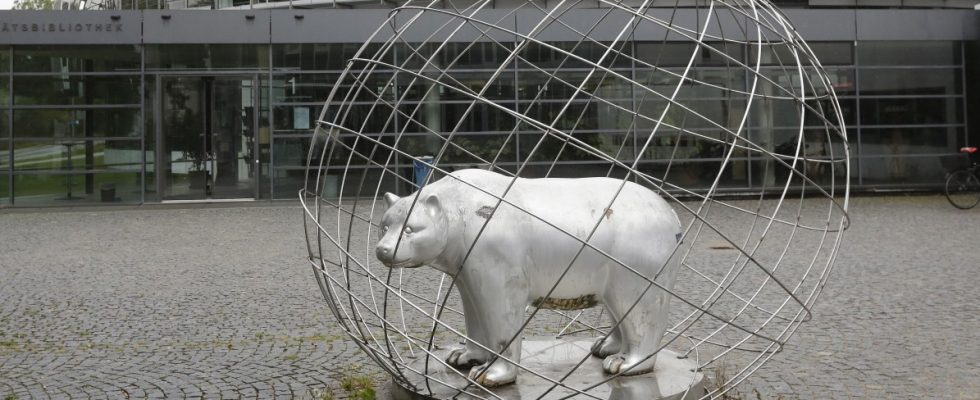Hardly any other location has such good conditions for agricultural research: on the campus in Weihenstephan, the Technical University of Munich (TUM), Weihenstephan-Triesdorf University (HSWT) and the State Institute for Agriculture are just a stone’s throw away from each other. A team of experts is currently evaluating proposals from the three presidents for closer cooperation. The reform process initially gave rise to fears that the three partners would not be able to act on equal terms in the future; this was denied at a hearing in the state parliament.
One person who has been committed to agricultural sciences for years is CSU state parliament member Martin Schöffel, who recently became State Secretary in the Ministry of Finance. For his commitment, the Max Schönleutner Society Weihenstephan will award him the Max Schönleutner Medal next Tuesday. Schöffel has pushed for a new political inclusion of the topic of agricultural science on the government’s agenda, according to the statement. The SZ spoke to him about the future of agriculture and what the honor means to him.
SZ: What does the award mean to you? The award says that you have dealt intensively with agricultural sciences in Bavaria.
Martin Schöffel: I consider the award from the Max Schönleutner Society to be a great honor – especially in view of the previous award winners. Bavarian agriculture has always been close to my heart. Over the last 15 years I have been able to work for them in various functions. In order to maintain the best conditions for Bavaria as an agricultural location, innovative universities are essential as the home of sustainable and practical nutrition, horticulture and agricultural science.
A look into the future: What should agriculture in Bavaria look like in 20 years?
Agriculture will continue to play an invaluable role in food production, lively villages, diverse cultural landscapes, biodiversity, decarbonization and energy production in all parts of Bavaria. As with other sectors of the economy, we must reduce bureaucratic hurdles and give more scope for entrepreneurial responsibility. This is the best way to support family-run farms as the backbone of our agriculture and a guarantee of regional food production. Animal husbandry will also retain its role as the basis of food security and natural nutrient cycles. Personally, I hope that in the future young farmers will continue to be able to align their businesses according to regional conditions, individual interests, market conditions and good professional practice and that they will enjoy a high level of appreciation from consumers.
The Max Schönleutner Society Weihenstephan honors State Secretary Martin Schöffel for his commitment to agricultural sciences.
(Photo: private)
What could or should the Weihenstephan research location contribute to this?
The Weihenstephan research site is central to the scientific support of our agriculture in Bavaria and, with the facilities of the TUM, the HSWT and the State Institute for Agriculture, is unique in Germany. Weihenstephan offers our future managers in the agricultural sector, in government institutions, in domestic and international organizations top training. Agricultural sciences must be thought of and organized as systems sciences. To this end, the cooperation between science and practice must be continued and intensified in the future; this will sustainably promote Bavaria as an agricultural location. I see the advisory function for agricultural policy as an important task of science.
Why do you think a reform of the location is necessary?
Through the ambitious reform, Bavaria is securing a top-class agricultural science location in the long term, which is not only accepted by students, but also works hand in hand with practice – a real benefit for agriculture in the Free State.
Can this be achieved without one of the partners being “buttered”?
Of course this can be successful – that must also be a clear goal. Only by using the different competencies in Weihenstephan can we leverage synergies and scientifically support new challenges in food security and agriculture.
Should politics really get involved in this process?
We need more networking, coordination, goals and team play. For this purpose, the Bavarian state parliament and the state government have set up a so-called sounding board, i.e. a committee with external experts. The board’s task is to make suggestions for the future of agricultural sciences and these should be incorporated into the reform process. I think we are on a very good path. Agriculture is an inseparable part of Bavaria – and that will continue to be the case in the future!

